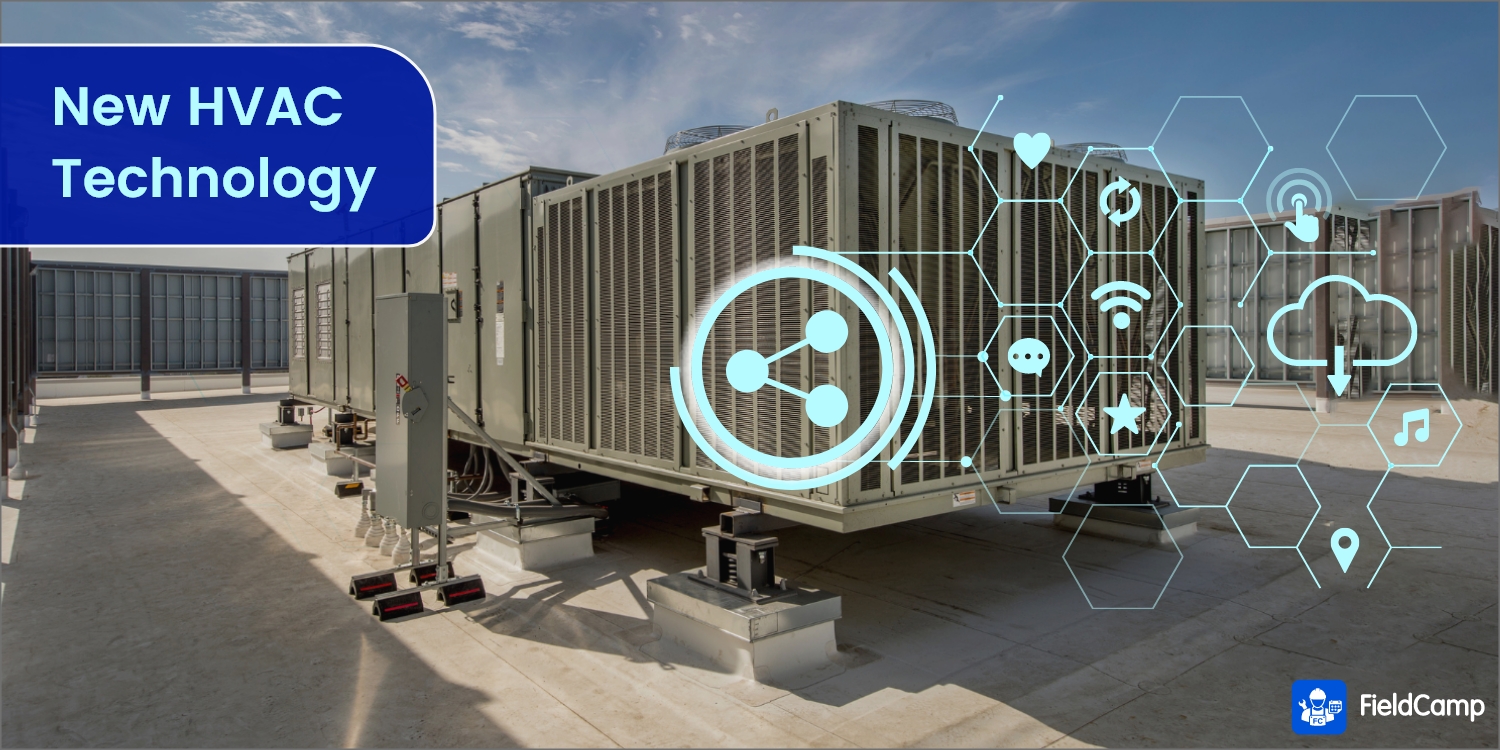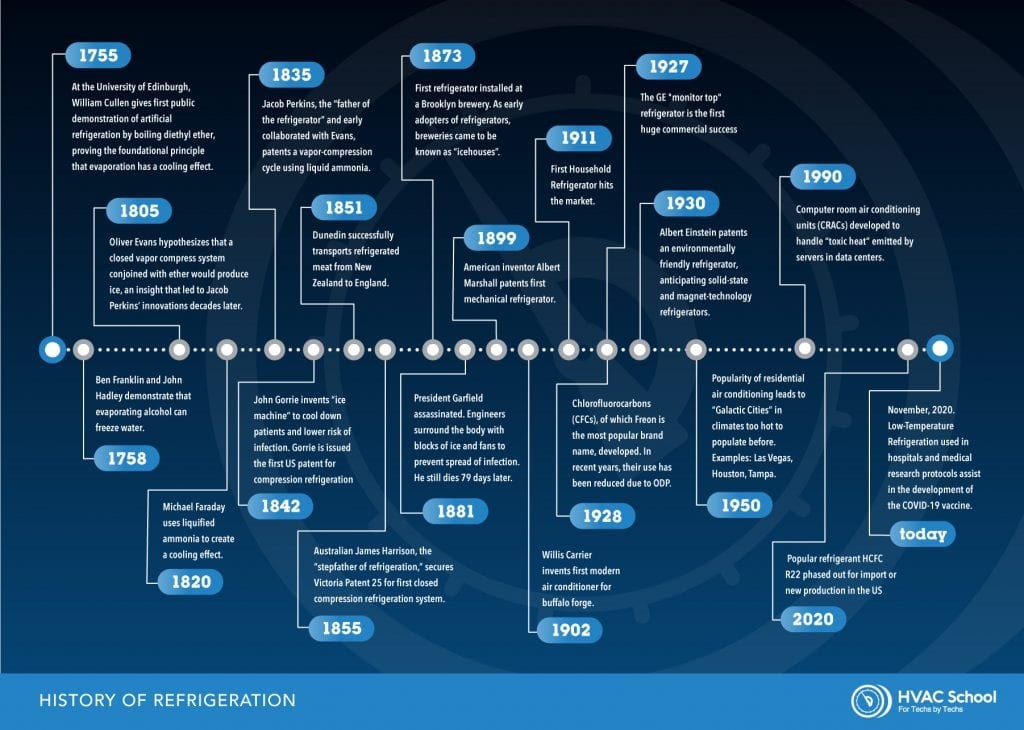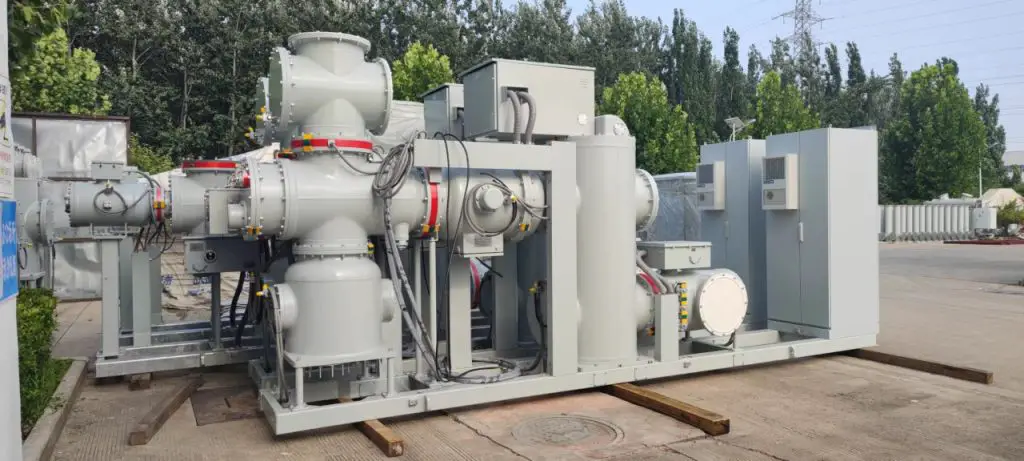Refrigeration and Air Conditioning Technology involves systems that control temperature and humidity to provide cooling. These systems are essential for food preservation, climate control, and industrial applications.
Refrigeration and Air Conditioning Technology is a field of engineering that encompasses the design, operation, and maintenance of systems used to control and maintain specific environmental conditions. This technology operates on the principles of thermodynamics, heat transfer, and fluid mechanics, to remove heat from one area and discharge it to another, effectively managing indoor climate and preserving perishable goods.
Engaging with this technology typically requires a deep understanding of the components and processes involved in refrigeration cycles, air conditioning units, and potentially heat pump systems. The professionals in this industry ensure optimal performance, energy efficiency, and adherence to environmental regulations, making it a vital component in residential, commercial, and industrial settings. As climate control becoming increasingly important in various aspects of modern life, the demand for skilled technicians in this field continues to grow.
Evolution Of Cooling Systems
The Evolution of Cooling Systems has been nothing short of revolutionary. As humans sought relief from the heat, our ancestors devised ingenious methods to keep food fresh and habitats comfortable. Today, we explore the remarkable journey from rudimentary ice storage to the sophisticated refrigerators and air conditioners that grace our homes and workplaces.
From Ice Houses To Modern Refrigerators
Centuries ago, people stored ice in subterranean vaults known as ice houses. This was their only means to preserve food. Fast forward to the early 20th century, and the domestic refrigerator emerges, changing lives forever. Let’s take a quick glance at the milestones:
- 1800s: Ice boxes were the norm, where people kept blocks of ice to cool their edibles.
- 1913: The first domestic refrigerator with a cooling compressor was invented.
- 1930s: Freon-based refrigerators became household staples.
- Today: Modern refrigerators boast energy-efficient compressors, smart technology, and futuristic designs.
Advancements In Air Conditioning Technologies
The chronicle of air conditioning technology is equally remarkable. Humankind evolved from fanning themselves in the heat to enjoying the luxury of climate control with the press of a button. Key advancements include:
| Year | Development |
|---|---|
| 1902 | Willis Carrier invents the first modern air conditioning system. |
| 1950s | Residential air conditioners become more accessible and widespread. |
| 1970s | Introduction of the rotary compressor, making AC units more efficient. |
| 2000s and beyond | Smart air conditioners connect to the internet and are controlled via smartphones. |
These systems not only cool the air but also improve air quality and manage humidity. Sustainable solutions are now hitting the markets, reflecting society’s growing environmental awareness.

Credit: www.fieldcamp.com
Importance Of Hvac In Modern Living
Refrigeration and Air Conditioning Technology have become crucial in modern living. They ensure comfortable indoor temperatures and clean air. Homes, hospitals, and offices all benefit from this tech. Let’s dive into why HVAC systems play a key role in our lives.
Subheading: Climate Control and ComfortClimate Control And Comfort
HVAC systems provide perfect temperatures year-round. Whether it’s a scorching summer or a chilly winter, these systems adjust environments to suit human comfort levels. Climate control at your fingertips means no more tossing and turning in bed due to heat or shivering during a cold snap.
Subheading: Health Benefits and Air QualityHealth Benefits And Air Quality
Clean air is non-negotiable for good health. HVAC systems filter pollutants, keeping the air in our spaces fresh. They also maintain optimal humidity levels, preventing mold growth. For allergy sufferers, modern HVAC tech can be a lifesaver, reducing triggers for asthma and allergies.
Cutting-edge Innovations
Refrigeration and air conditioning systems are vital for comfort and preservation. Technological advancements are transforming these systems to be smarter, more efficient, and eco-friendly. Today, we will explore some cutting-edge innovations that are shaping the future of this industry.
Eco-friendly Refrigerants
The quest for sustainable solutions has led to the development of eco-friendly refrigerants. These new substances aim to reduce the environmental impact by having a lower global warming potential (GWP).
- Hydrofluoroolefins (HFOs) – next-generation refrigerants with a low GWP
- Natural refrigerants like CO2, ammonia, and hydrocarbons
- Innovations in blending refrigerants to optimize performance
Smart System Integration
Smart technology is changing how refrigeration and air conditioning systems operate. Integrating with the Internet of Things (IoT), these systems can now be managed remotely.
- Real-time monitoring of system performance and efficiency
- Automated adjustments for optimal temperature control
- Energy consumption tracking to improve savings
Thermal Energy Storage
Thermal energy storage (TES) is an innovation that allows excess energy to be stored and used when demand is high. This method helps in reducing operating costs and improving system reliability.
- Ice-based systems that store cold energy
- Phase change materials (PCMs) that absorb and release thermal energy
- Integration with renewable energy sources for enhanced sustainability
The Role Of Automation
Automation is transforming refrigeration and air conditioning systems. Control systems get smarter every day. They now use algorithms to manage temperature and optimize energy use. This evolution makes systems more reliable and efficient.
Ai In Temperature Control
Artificial Intelligence (AI) has revolutionized temperature management in cooling systems. AI predicts and adjusts to the desired temperature without human intervention. This results in consistent cooling and heating performance. AI systems learn from past data and make real-time adjustments.
- Smart thermostats adjust settings based on usage patterns
- AI-driven sensors detect environmental changes instantly
- Self-regulating cooling systems maintain optimal temperatures
Predictive Maintenance
Predictive maintenance uses data analytics to prevent failures. This approach is critical in the HVAC industry. Sensors collect data on system performance. Software analyzes this data to predict when parts might fail.
- Monitoring vibration and temperature for early warning signs
- Reducing system downtime and repair costs with timely alerts
- Extending equipment’s life by preventing wear and tear
Energy Efficiency Improvements
Energy efficiency is a top priority in modern cooling technologies. Automation helps achieve this through precise control and operation. Systems operate only when needed, using the minimum amount of energy.
| Feature | Benefit |
|---|---|
| Variable speed compressors | Save energy by adjusting speed to load requirements |
| Automated shut-off | Turn off the system when not in use |
| Smart meters | Track and manage energy consumption effectively |
Future Outlook
The landscape of Refrigeration and Air Conditioning Technology is rapidly evolving. Advancements are shaping a future that is energy-efficient, sustainable, and technologically sophisticated. Let’s delve into the aspects that will drive change in the coming years.
Potential Of Solar Cooling
Solar cooling systems harness the power of the sun to provide refrigeration and air conditioning solutions. They represent a breakthrough in reducing electricity costs and greenhouse gas emissions. This technology is not just eco-friendly; it’s also becoming more accessible as research continues.
- Reduction in carbon footprint
- Lower operational costs over time
- Innovations making it viable for wide-scale deployment
Magnetic Refrigeration Prospects
The promise of magnetic refrigeration lies in its novel approach to cooling. Utilizing magnetic fields to change the temperature of magnetocaloric materials, this technology offers a potential leap in energy efficiency. It is quiet, reliable, and lacks harmful refrigerants.
- No need for gases or compressors
- Energy savings could be substantial
- Focused on reducing global warming impact
Challenges And Opportunities
As we move forward, the industry faces challenges but also countless opportunities. Balancing cost, efficiency, and environmental impact is key.
| Challenges | Opportunities |
|---|---|
|
|

Credit: cielowigle.com

Credit: www.kalosflorida.com
Frequently Asked Questions On Refrigeration And Air Conditioning technology
What Is Refrigeration And Air Conditioning Technology?
Refrigeration and air conditioning technology involves controlling and maintaining cool environments in homes, vehicles, and commercial spaces. Refrigeration focuses on food and material storage, while air conditioning aims to provide comfortable indoor temperatures and humidity levels.
Is Air Conditioning And Refrigeration A Good Career?
Air conditioning and refrigeration offer a stable and lucrative career with opportunities for growth and specialization.
What Is The New Refrigeration Technology In 2023?
The new refrigeration technology in 2023 is magnetic refrigeration, which uses magnetocaloric effects for cooling.
What Is The Difference Between Hvac And Refrigeration?
HVAC encompasses heating, ventilation, and air conditioning, while refrigeration specifically focuses on cooling and preserving perishables.
Conclusion
Refrigeration and air conditioning technology shapes our comfort and preservation needs daily. This field’s constant evolution offers both challenges and opportunities. Prospective students and industry professionals alike must stay informed for success. Keep exploring, learning, and innovating in this dynamic arena.
Your contributions keep our world cool and fresh.

